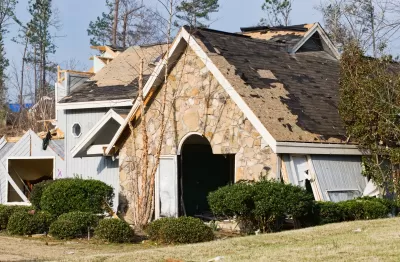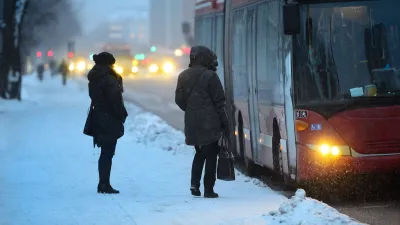Insurance companies are responding to the increasing frequency and intensity of severe weather events caused by climate change by raising home insurance premiums in high-risk states, adding another hurdle to housing affordability in the U.S.

According to an article from Fox Business, skyrocketing insurance premiums are putting pressure on homeowners across the country. The average cost of home insurance on a $300,000 property in the U.S. has risen 12.7 percent to approximately $1,770 a year, but that rate is even higher in states at higher risk for severe weather and other climate-related hazards, says a new report by Insurify, an insurance comparison website headquartered in Massachusetts.
As frequency and severity of those events are only expected to increase, insurance companies are reconsidering their coverage in these areas. Some are opting to leave states like Florida altogether, driving costs in these states even higher. These rising costs represent an obstacle to home ownership and “has pushed a key tenet of the American dream out of reach for millions of families,” writes Fox Business’s Megan Henney.
Here are the 10 states with the highest average insurance premiums in 2023, according to the report:
- Florida: $9,213/year, 14% increase in 2023, +421% compared to national average (NA)
- Oklahoma: $4,782/year, 24% increase, +170% national average
- Mississippi: $4,017/year, 23% increase, +127% national average
- Texas: $3,969/year, 18% increase, +124% national average
- Nebraska: $3,519, 14% increase, +99% national average
- Colorado: $3,308, 12% increase, +87% national average
- Kansas: $3,245/year, 19% increase, +83% national average
- New York: $1,942, 14% increase, +10% national average
- Georgia: $2,173, 17% increase, +23% national average
- Massachusetts: $1,649, 14% increase, -7% national average
Rising insurance costs are not only a challenge for existing homeowners, but combined with record-high housing prices and high interest rates, for potential home buyers as well. Even renters don’t escape unscathed, as landlords frequently pass along rising ownership costs in the form of rent increases to maintain profit margins.
FULL STORY: Surging home insurance costs could force families to leave these 10 states

Maui's Vacation Rental Debate Turns Ugly
Verbal attacks, misinformation campaigns and fistfights plague a high-stakes debate to convert thousands of vacation rentals into long-term housing.

Planetizen Federal Action Tracker
A weekly monitor of how Trump’s orders and actions are impacting planners and planning in America.

In Urban Planning, AI Prompting Could be the New Design Thinking
Creativity has long been key to great urban design. What if we see AI as our new creative partner?

King County Supportive Housing Program Offers Hope for Unhoused Residents
The county is taking a ‘Housing First’ approach that prioritizes getting people into housing, then offering wraparound supportive services.

Researchers Use AI to Get Clearer Picture of US Housing
Analysts are using artificial intelligence to supercharge their research by allowing them to comb through data faster. Though these AI tools can be error prone, they save time and housing researchers are optimistic about the future.

Making Shared Micromobility More Inclusive
Cities and shared mobility system operators can do more to include people with disabilities in planning and operations, per a new report.
Urban Design for Planners 1: Software Tools
This six-course series explores essential urban design concepts using open source software and equips planners with the tools they need to participate fully in the urban design process.
Planning for Universal Design
Learn the tools for implementing Universal Design in planning regulations.
planning NEXT
Appalachian Highlands Housing Partners
Mpact (founded as Rail~Volution)
City of Camden Redevelopment Agency
City of Astoria
City of Portland
City of Laramie





























